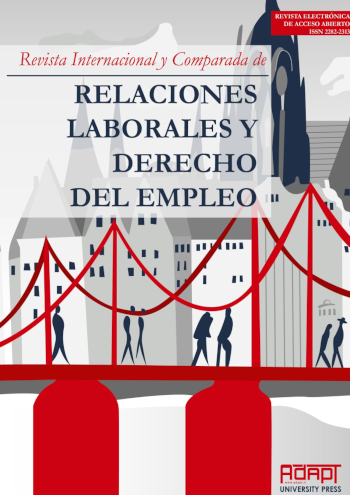Abstract
En este artículo abogamos por la introducción del derecho perfecto al trabajo en la discusión sobre el futuro del estado social que ha surgido con ocasión de la emergencia sanitaria, económica y social provocada por la Covid-19. Constataremos de qué modo esta pandemia ha exhibido las insuficiencias de nuestros sistemas de aseguramiento social en un contexto de sociedad del riesgo y cómo, en consecuencia, se ha abierto un profundo proceso de reflexivo en el que se cuestionan los fines y medios del estado de bienestar, y en el que se sopesa su futura remodelación. Apreciaremos que en este debate, tanto en el plano político cuanto doctrinal, han adquirido un protagonismo notable las propuestas que pretenden la instauración de mecanismos universales de protección social de corte prestacional o rentístico, especialmente, dentro de estos, el que denominamos “renta básica universal”. Aquí, desde una posición crítica, trataremos de presentar el derecho perfecto al trabajo como una alternativa equiparable a la renta básica que, incluso, superaría algunos de los déficits de legitimidad que a ésta se le imputan.
In this article we will defend the introduction of the right to work in the political and intellectual discussion about the future of the social state that has emerged after the health emergency of Covid-19. We will verify how this pandemic has shown the inadequacies of our social insurance systems in a context of risk society. We will also see how, consequently, a profound process of reflection has been opened in which the ends and means of the social state are weighed and in which its future remodelling is considered. In this collective debate, the proposals that seek to establish universal protection mechanisms for the benefit or income cut have acquired a notable role. Here, from a critical position, we will try to present the perfect right to work as an alternative comparable to basic income that, however, would overcome some of the legitimacy deficits that are attributed to it.

